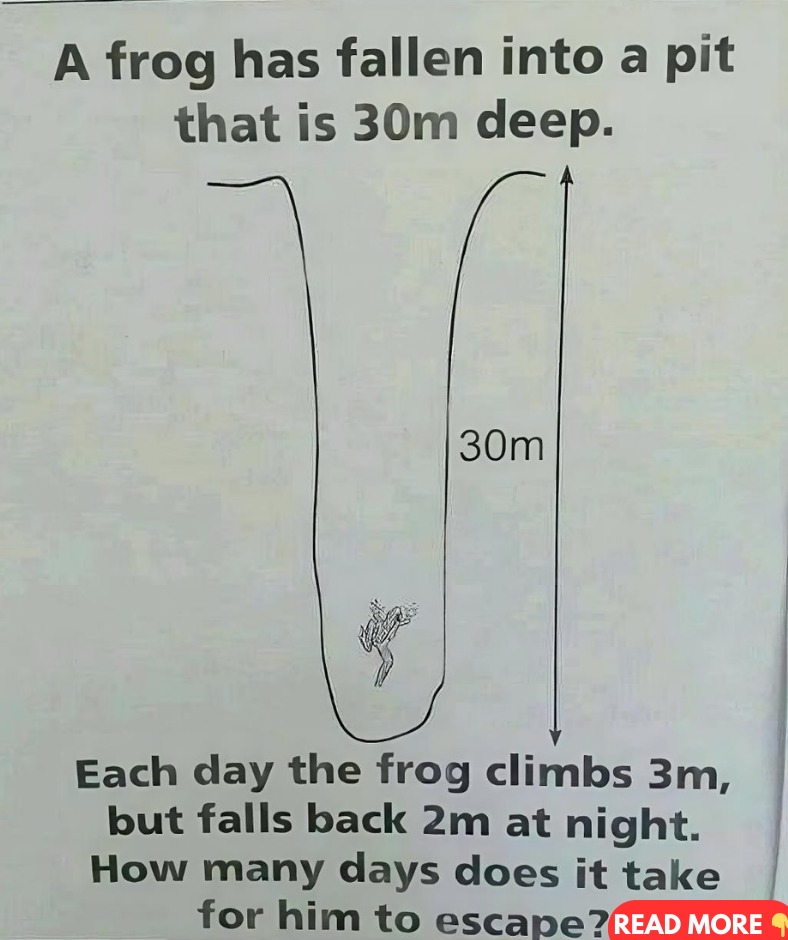Riddles have fascinated people for ages, offering more than just entertainment. They serve as a powerful mental tool that sharpens cognitive abilities, enhances problem-solving skills, and expands our understanding of the world. Think of riddles as a fun mental exercise—an engaging way to challenge your brain and unleash its hidden potential. In this article, we’ll explore the impact riddles have on mental agility and why regularly solving them can lead to noticeable cognitive growth.

Riddles: A Workout for the Mind
While riddles may seem simple at first, they offer complex mental challenges. Solving riddles involves processes like logical reasoning, creative thinking, and memory recall, similar to how physical workouts strengthen muscles. Each riddle you solve stretches your mental limits, making your brain more adaptable and quick to respond.
Here’s a classic riddle that exemplifies this mental workout:
“A frog falls into a 30-meter-deep pit. Each day, it climbs up 3 meters, but at night, it slips back 2 meters. How many days will it take for the frog to escape?”
The answer is 28 days, but figuring that out takes more than a quick calculation. It involves breaking down the problem, identifying patterns, and applying logical thinking.
Solving the Frog Riddle: The Process of Critical Thinking
When faced with the frog riddle, it’s easy to get caught up in the numbers. However, solving it requires a more analytical approach:
- Break Down the Problem: First, identify the frog’s daily progress. Each day, it climbs up 3 meters but slips back 2 meters, resulting in a net gain of 1 meter each day.
- Identify Patterns: On the 28th day, the frog will reach the 30-meter mark during the day and won’t slip back, making this its final climb.
- Apply Logic: By understanding the pattern of the frog’s climb, you can determine that it takes 28 days for the frog to reach the top of the pit.
This riddle illustrates the importance of logical thinking and critical analysis—skills that are beneficial not just for solving puzzles but also for tackling real-life challenges.
How Riddles Drive Cognitive Growth
While riddles may seem like a simple pastime, their true value lies in the way they enhance mental performance. Whether you’re aiming to boost your memory, refine problem-solving abilities, or maintain mental sharpness, riddles provide an enjoyable yet effective path to achieving these goals.
The Real-World Benefits of Riddles
Riddles are not only entertaining but also practical, equipping us with skills that extend beyond puzzle-solving. Here’s why integrating riddles into daily life can be beneficial:
- Improved Problem-Solving: The skills gained from solving riddles—like breaking down problems and finding solutions—are transferable to everyday situations. Whether it’s managing a complex project at work or troubleshooting a household issue, the mental skills honed through riddles can help you navigate real-life challenges more effectively.
- Enhanced Focus Under Pressure: Riddles require concentration and focus, especially when trying to solve them quickly. This focus can be useful in high-stress situations, training your mind to remain calm and attentive to detail, even under pressure.
- Boosted Creativity in Decision-Making: Riddles often require “outside-the-box” thinking, pushing you to consider unconventional solutions. This creative thinking can lead to more innovative approaches when dealing with challenges, both big and small.
The Joy of Mental Stimulation
The beauty of riddles is their variety—they range from simple word puzzles to complex logic challenges. No matter your experience level, there’s always a riddle that can challenge your mind and push your cognitive abilities to new heights.
The best part? You don’t have to be a genius to benefit from solving riddles. The key is consistency—choosing riddles that are challenging enough to stimulate your brain but not too difficult to solve. Over time, you’ll notice improvements in your cognitive agility, creativity, and logical reasoning.
The Frog Riddle as a Metaphor for Persistence
The frog riddle is more than just a puzzle—it’s a metaphor for persistence and problem-solving. It teaches you to break down complex issues, identify patterns, and apply logical thinking. Just like the frog’s determined climb, tackling riddles helps you build mental resilience, teaching you to approach problems methodically and stay persistent, even when progress is slow.
Why Riddles Matter in Mental Growth
Regularly solving riddles is an effective way to keep your mind sharp and your thinking agile. It’s similar to maintaining physical fitness: the more you train, the stronger you become. As you engage with riddles consistently, you’ll develop better logical thinking, quicker decision-making, and more creative problem-solving skills. Even if a riddle stumps you initially, the process of working through it helps improve your mental strength.
Conclusion: Embrace Riddles for Cognitive Development
Riddles are more than just a fun challenge; they’re a powerful tool for cognitive growth. By regularly engaging with riddles, you can improve problem-solving skills, enhance memory, stimulate creativity, and sharpen focus. The next time you encounter a riddle, don’t shy away from it. Embrace the challenge, enjoy the mental workout, and watch your mind become sharper, quicker, and more adaptable.
So, take on the next riddle you come across—it’s not just about finding the right answer, but about unlocking your brain’s full potential.





